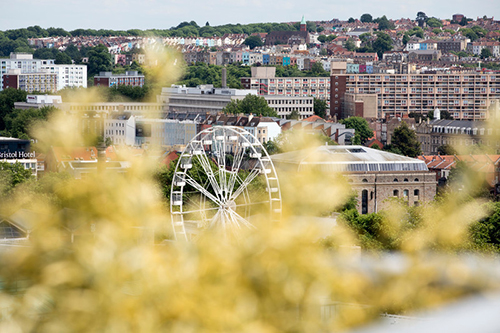The research by UWE Bristol and the University of Bristol also showed the mayoral model of leadership had unnecessarily restricted the role of councillors and reduced citizens' belief in their ability to influence decisions.
Bristol was one of the pioneering UK cities to introduce an elected mayor in 2012. Researchers at both universities have gathered data over an eight-year period to explore whether the model has been successful.
Researchers compared people's views about the quality of city governance in Bristol as expressed in 2012, before Bristol had a directly elected mayor, with current views about the strengths and weaknesses of the mayoral model.
Academics have highlighted five major findings from their ongoing research, the Bristol Civic Leadership Project, in an independent report Mayoral governance in Bristol: Has it made a difference?.
- The research shows that the introduction of mayoral governance in Bristol has given a significant boost to the visibility of city leadership. In 2012 24 per cent of citizens thought that the city had visible city leadership. By 2018 this figure had more than doubled to reach 51 per cent. The mayor of Bristol is a high-profile public figure able to convene important stakeholders; this is a marked contrast to the situation that existed in the pre-mayoral era.
- Mayoral leadership has led to a more broadly recognised vision for the city. In 2012, 25 per cent of citizens thought that the leadership of the council had a vision for the city. This rose to 39 per cent in 2018. In interviews carried out in 2019 civic leaders indicated that mayoral leadership has been critical in developing the new One City Plan, which sets out a detailed vision for Bristol in 2050.
- The mayoral model has enabled the first two mayors of Bristol to promote Bristol on the national and international stage, and this outgoing leadership has attracted investment to the city.
- The research found that the role of councillors in exercising civic leadership has been unnecessarily restricted within the way the mayoral model has operated so far. This drawback was identified in the researchers' 2015 report and remains a concern that needs to be addressed.
- There has been a small decline in the number of citizens believing that there are many opportunities to get involved in decision-making in the city. The proportion feeling this way dropped from 27 per cent in 2012 to 23 per cent in 2018.
Robin Hambleton, Emeritus Professor of City Leadership at UWE Bristol and one of the report's authors, said: "Ahead of the forthcoming local elections in May there is a chance to study this report on whether the mayoral model has worked.
"We hope it will help the citizens of Bristol reach an informed view about whether Bristol should continue with a mayoral model of governance or get rid of it. We also identify challenges that need to be addressed by central government ministers if they want mayoral governance to succeed in localities across the UK."
Dr David Sweeting, a Senior Lecturer in Urban Studies at the University of Bristol and another of the report's authors, said: "The report offers several suggestions on how to improve mayoral governance in England in general, and in Bristol in particular. For example, it suggests that Whitehall needs to devolve far more powers and fiscal autonomy to local areas so that elected local leaders, whether they are directly elected mayors or not, can exercise decisive place-based leadership."
